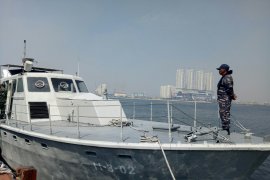"Therefore, the government is resolved to create conducive investment climate," Head of Industrial Research and Development Agency (BPPI) of the Ministry of Industry, Ngakan Timur Antara, said here on Sunday.
Ngakan said his agency has taken strategic steps such as economic policy packages, incentives and ease of doing business facilities.
The multiple effects of the policy included added values of raw materials, local workers absorption, increase in foreign exchange earning from exports, taxes and excise duties.
The efforts could accelerate even distribution and national inclusive and quality economic growth. This leads the government to carry out economic transformation which shifts consumption- to manufacturing-based economy.
"So, our economy would be more productive and provide wider multiplier effects," he said.
Therefore, the Ministry of Industry is consistent with the implementation of the industrial down-streaming in the non-oil/gas processing sector with an emphasis on stock chain approach so that it would be more competitive in the domestic, regional and global levels.
"The development of non-oil-based manufacturing industries is prioritized in sectors that are resource-based and absorbing many jobs," added Ngakan.
Referring to Central Statistics Agency (BPS) data, in the third quarter of 2018, the manufacturing industry still has the largest contribution to the national gross domestic product (GDP) of 19.66 percent.
"The contribution is big enough, so Indonesia is in the ranks of the world`s elite as an industrial country," he said.
According to the United Nations Industrial Development Organization (UNIDO) report, Indonesia ranks the world`s 9th largest value-added country from the industrial sector.
In addition, seen from the percentage of industry contributions, Indonesia is also in the top 4 of the world.
"If it is assessed from the global competitiveness index, which is currently introducing a new method with the indicator of application of industrial revolution 4.0, Indonesia ranks up from 47 position in 2017 to 45th level in 2018," he explained.
Meanwhile, Nikkei and IHS Markit survey results showed that Indonesia`s Purchasing Managers` Index (PMI) in October 2018 was at 50.5 or still expansive.
In fact, Indonesia managed to rank third in ASEAN. Indonesia`s position is better than Malaysia (49.2), Thailand (48.9), Myanmar (48.0) and Singapore (43.3).
The three manufacturing sectors were able to surpass 5.15 percent growth in the third quarter of 2018, the textile and apparel industry grew to 10.17 percent, the food and beverage industry was at 8.10 percent, and the transport equipment industry was 5.37 percent.
"These three sectors are also a choice in Making Indonesia 4.0 as a pioneer in the application of industry 4.0 in Indonesia, besides chemical industry and electronics industry" he said.
Reporting by Sella Panduarsa Gareta, Andi Abdussalam
Reporter: Antara
Editor: Sri Haryati
Copyright © ANTARA 2018











